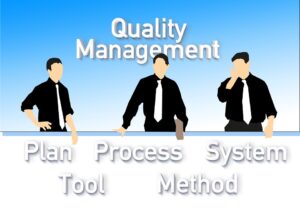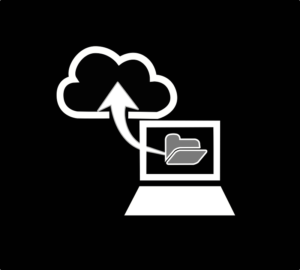One way to address daily challenges and take your business to the next level is to implement a set of small business systems. As a small business owner, you are quite familiar with the challenges of running a successful operation – From managing finances to marketing your products or services, there are countless tasks that need to be accomplished daily.
Business systems are processes, procedures, and tools that help any business – including small businesses manage and organize their operations more effectively to improve the customer experience and increase customer satisfaction.
They can help you streamline processes, increase efficiency, and improve communication, among other benefits.
6 Benefits of Small Business Systems and Processes
Business systems make it easy to
- streamline processes,
- improve productivity,
- improve communication internally with employees, and externally with suppliers and customers.
- enhance data management and analysis.
- improve customer experience, and
- cost savings
1. Streamline Processes with Small Business Systems
One of the primary benefits of business systems is that they can help small businesses streamline their processes. By identifying the most time-consuming and resource-intensive tasks, you can create a set of procedures and tools that make it easier to get things done. This helps save time, reduce errors, and increase the overall efficiency of your operations.

For example, you can implement a customer relationship management (CRM) system that automates the process of tracking customer interactions and sales leads.
Or, you can use project management software to streamline the process of assigning tasks and monitoring progress.
By creating a set of procedures and tools that work for your business, you can maximize your efficiency and productivity.
Other common small business systems include:
- Accounting software to manage finances and track expenses.
- Inventory management software to track inventory levels and automate orders.
- Online scheduling and booking software to manage appointments and reservations.
2. Improve Productivity
Business systems can also have a positive impact on employee productivity. By streamlining processes and providing employees with the tools they need to do their jobs more efficiently, you can help them work more productively and effectively.
When employees can work more efficiently, they can accomplish more in less time, and with fewer errors.
For example, you can implement a time tracking and management system that helps employees manage their schedules and prioritize their work.
You can also provide them with access to project management and collaboration tools that make it easier to work together and share information.
By investing in systems that support your employees, you can help them work more productively and effectively.
Some Productivity-Boosting Small Business Systems
There are many different types of business systems that can improve employee productivity. Some common examples include:
- Collaboration tools, such as video conferencing and instant messaging
- Time tracking and management software, such as Trello or Asana
- Employee performance management software
- Learning management systems to train and develop employees’ skills
- Customer support software, such as HubSpot, Freshdesk or Zendesk
3. Improve Communication
Effective communication is central to the success of any small business. Business systems can help improve communication both internally among employees and externally with customers.
By implementing communication-enhancing systems, you can ensure that everyone in your business is on the same page and that customers are receiving the information and support they need.
Benefits include:
- Improved customer satisfaction and loyalty
- Faster response times and better customer support
- Increased employee collaboration and productivity
- Better decision-making through more accurate and up-to-date information
- Increased sales and revenue by providing customers with timely and relevant information.
For example, you can use customer relationship management (CRM) software to manage customer interactions, track communication history, and respond to inquiries more efficiently.
You can also use chatbots or social media monitoring tools to respond to customer queries in real time, improving response times and customer satisfaction.
These systems can help your employees collaborate and communicate more effectively, leading to better teamwork and productivity.
4. Enhance Data Management and Analysis
By collecting and analyzing data, small businesses can make informed decisions and drive growth. However, managing and analyzing data can be a challenging and time-consuming task. This is where business systems can help.
Business systems can help small businesses collect, organize, and analyze data more efficiently. For example, inventory management systems can help small businesses track inventory levels and reorder products when needed.
Customer data management systems can help businesses track customer behavior and preferences, enabling them to offer personalized experiences and promotions.
Business intelligence systems can help small businesses analyze data and gain insights into their business performance, market trends, and customer behavior.
Other examples are financial management systems and marketing automation systems.
Benefits of Data-Driven Decision-Making from Use of Small Business Systems
By using accurate and timely analyzed data, better decisions can be made in the business.
Other benefits include increased efficiency and productivity through automation and streamlining processes, and improved customer experiences through personalized marketing and promotions.
There is also better inventory management by reducing stock outs and overstocking, increased sales and revenue through data-driven marketing, and sales strategies.
5. Improve Customer Experience
The customer experience is a key driver of small business success. Happy customers are more likely to return and recommend the business to others, leading to increased revenue and growth.
Business systems can help small businesses improve the customer experience by providing personalized and streamlined interactions, efficient order management, and quick resolution of customer issues.
For example, customer relationship management (CRM) systems can help small businesses track and manage customer interactions and preferences.
E-commerce platforms can provide an intuitive and seamless shopping experience, making it easy for customers to find and purchase products online, while customer service software can help small businesses respond quickly to customer inquiries and resolve issues efficiently.
Finally, Loyalty programs and feedback management systems serve to further enhance the customer experience.
6. Cost Savings
In addition to the many other benefits, business systems can also save small businesses a significant amount of money. Here are some of the ways that business systems can help reduce costs:
Automating repetitive tasks: By automating certain tasks such as invoicing, inventory management, and other administrative tasks, small businesses can save time and reduce the likelihood of errors. This can help reduce labor costs and free up time for more important tasks.
Improved inventory management: With a business system that integrates inventory management, small businesses can avoid overstocking or understocking items. This can help reduce inventory carrying costs and prevent lost sales due to stock outs.
Reduced paper usage: By digitizing documents and processes, small businesses can reduce their paper usage and the associated costs of printing, mailing, and storing paper documents through efficient document management systems.
Better financial management: Business systems that integrate accounting and financial management can help small businesses keep track of their finances and avoid costly errors.
Examples of cost-saving business systems

- Cloud-based storage and file-sharing systems can help small businesses reduce hardware and maintenance costs.
- Customer Relationship Management (CRM) systems can help businesses automate customer service and reduce the costs associated with manual customer management.
- Human Resources Management (HRM) systems can help small businesses streamline employee management and reduce labor costs.
Conclusion – Small Business Systems
In today’s highly competitive business environment, all businesses need to maximize their resources and minimize costs to stay ahead – especially small businesses.
By adopting a set of small business systems, they can increase their efficiency and productivity, while also improving the customer experience and saving money – among other benefits. Small businesses must embrace business systems to remain competitive and achieve long-term success.
For assistance, CONTACT US TODAY
References
DeMers, J. (2017). The benefits of systematizing your small business. Forbes. Retrieved from https://www.forbes.com/sites/jaysondemers/2017/09/05/the-benefits-of-systematizing-your-small-business/?sh=7a554f0d7cb7
Karkal, A. (2019). How systemizing your business can help you work less and earn more. Forbes. Retrieved from https://www.forbes.com/sites/allbusiness/2019/02/07/systemizing-your-business-work-less-earn-more/?sh=5fd839cc50db
Yonkovick, D. (2020). The benefits of implementing systems and processes in small business. Keystone Financial Solutions. https://keystonefinancialsolutions.com/the-benefits-of-implementing-systems-and-processes-in-small-business/
Rist, O. (2020). How to implement systems and processes in your small business. The Hartford. https://www.thehartford.com/business-insurance/strategy/how-to-implement-systems-and-processes-in-your-small-business
McAfee, T. (2017). The importance of having a system for your small business. Fundbox. Retrieved from https://fundbox.com/blog/importance-of-having-a-system-for-your-small-business/
Evans, M. (2018). The benefits of implementing systems in your small business. Maverick Vision.https://maverickvision.com.au/the-benefits-of-implementing-systems-in-your-small-business/

